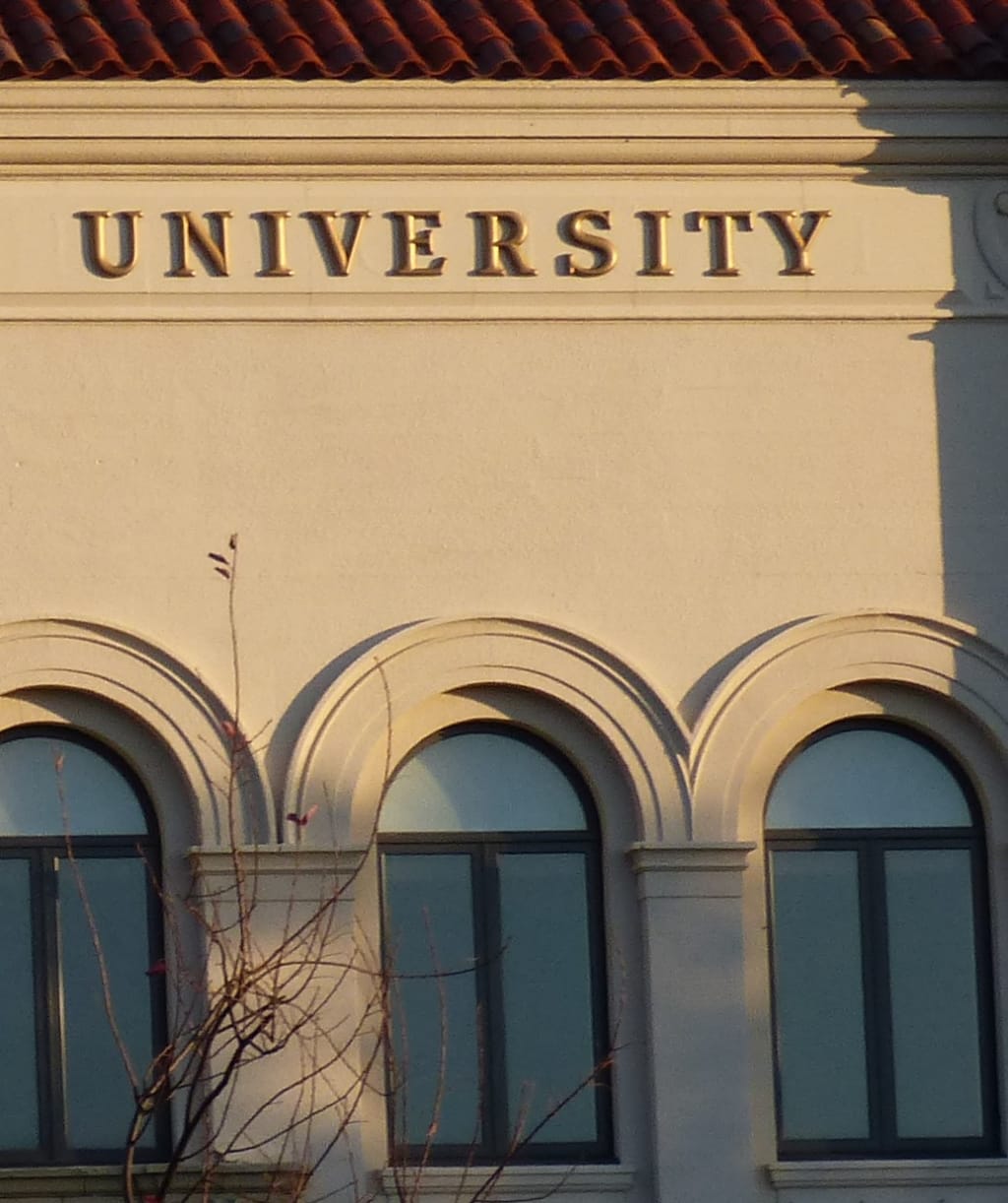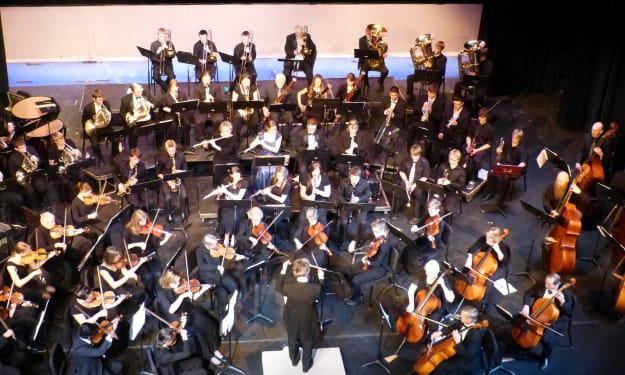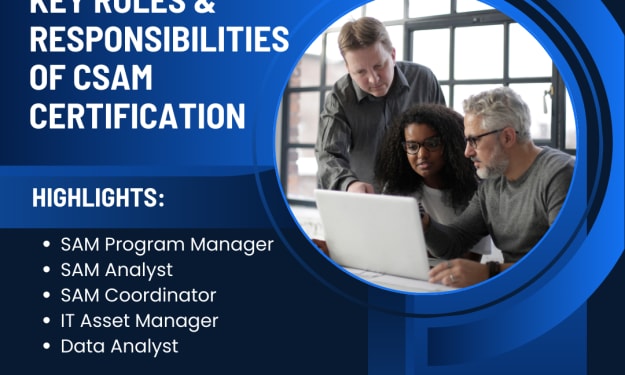The College Concept and Free Learning
Understanding How we Learn

For centuries, humans have been believed in one of two opinions related to education. This essay is centered on those two differing viewpoints. If those staunchly rooted in one camp or the other could agree on a compromise, they could actually come to an accord. I believe that you will understand what I mean by this as you read on.
The first viewpoint is what I like to call “The College Concept.” What I mean by that term actually covers all formal levels of education and by formal, I mean institutional. Simply put, it is the idea that a person can only learn properly in a formal school setting, behind a desk, with a teacher or instructor.
Wikipedia states that the term “Book smart” is an adjective describing a person whose knowledge greatly derives from book-learning, as opposed to practical experience, or 'street smarts'. (It is also used as a noun, as in, "She has book smarts").
This term is often used to describe someone who relies too heavily on their formal education.
The other side of the coin is the radical idea of “Free-learning,” the ability and opportunity to learn skills and absorb information beyond a traditional classroom that are just as valuable or some even more valuable than those learned at a desk. Many believe that those who subscribe to Free-learning are primitive and uneducated or even a “loser” in their eyes. While there are plenty of cases of illiteracy, this is not universally true at all. Read on to find out why.
Schools in some form have been in existence since ancient times when priests and scribes taught groups of boys a number of subjects like philosophy, math and writing. What we now know as “public schooling” has existed in some form since about the first century, A.D.
It seems that since then, most of society has not only embraced the idea of sending their offspring away to be educated, but have enthusiastically insisted upon it. In the minds of many, there is simply no other way for a child to learn than to send them to a school and there is no other way for an incomplete person to become a complete person than for them to successfully attend a college or university and earn a degree. If either of these requirements is unmet, then the unfortunate person is shamed and thought little better than an ape.
This belief in public schooling was so strong, that for a time and in many areas it was actually illegal to educate a child at home and the law often became involved. Education at any level is considered more important than honesty, kindness and happiness. Natural abilities are rarely if ever considered to be of value in such an education-obsessed society.
What this society has long failed to grasp is that “education” is an extremely subjective and variable thing. Every person on earth is different from the next and therefore, learns differently as well.
One individual may excel at math and barely be able to spell his own name, while another is a profound poet who can maybe count up to ten. Most people on Earth know something or have at least one solid skill that they did not learn in school. What does that tell us? That a person does not by any means learn all there is to know or for that matter, all that is necessary for life or worth knowing in school!
Consider just how much you actually learned at a desk in a classroom . . . that you have actually used since the day you learned it. Now, compare that with skills and talents that you use every day that you learned at home from a friend or relative, or read in a book outside of the classroom or learned by doing, self-taught, through trial and error. Think about those as we continue.
Let us go back to the beginning of formal education once again. Where do you think the first teachers gained their knowledge? It could not have been in school, if there were no schools before they began them. So then, how did anyone including those first illustrious teachers gain their own learning?
“Well,” you say, “They must have been self-taught or learned from someone else like their parents . . .”
And that is my point exactly.
Knowledge, folk, formal or otherwise is traditionally passed down from generation to generation. Father teaches son, mother teaches daughter, Grandparents teach grandchildren and so on.
Grandfather tells Grandson to look out for the stone or he will stumble. If Grandson does not heed the warning, he stumbles and recalls his Grandfather’s wise words as he nurses his skinned knee. Grandfather may not have had a formal education, but looking out for the stone is a valuable lesson well-learned.
Learning does not always come from a certified teacher, college instructor or even a person. Much of it comes from parents, grandparents, Aunts and Uncles, older siblings, friends and mentors, books, the internet and this little thing called life! It does not take a college degree to teach a lesson.
How much have I learned from settings other than a school? The answer is easy. Virtually everything I have in my data banks came from a source other than school. It helps that I was mostly home schooled, so the majority of my core subjects came from my parents and grandparents. My mother and the books she provided for learning really got my siblings and I started on the long road to knowledge.
It also helps that I was practically born with a strong penchant for story-telling which soon developed into a life-long love and talent for words. Math was not as strong in me, (Though, I can count past ten.) as it was in some of my siblings and at least one of those fellow “classmates” was known as a “creative speller.” Though we have all attended college since those home school days and some graduated, the bulk of our individual knowledge did not come from a classroom and the focus of our passions did not begin in the brick-and-mortar walls of an institution. We learned to love what we now love by reading books it about and experiencing it for ourselves, not by listening to a teacher talk about it.
A great example of this free-learning tendency lies with my own two sons. Like me, with my passions for writing, photography, film-making and other creative pursuits, my older son, (Who graduated from high school last year.) was born with a passion for science, technology and mechanical things.
What began with a precocious toddler switching channels on the TV and logging on to the internet, has outside of any school setting, developed into someone who reads manuals instead of novels and could probably get up and teach his own high school computer class. He is also teaching himself both French and Russian and can actually decipher most of the Russian alphabet as well as tell you what Russian characters sound like. He certainly did not learn any of that in a traditional classroom where all but one or two language courses have been dropped.
My younger son is no less of a free-learner and has many interests that differ greatly from those of his brother, one of them being cooking. He enthusiastically took a culinary class as a freshman in high school and earned an easy A.
It undoubtedly helps that he has watched TV cooking shows since he was little and continues to help plan and cook meals from breakfast to Thanksgiving Dinner as well as once assisting a chef in preparing a multi-course dinner for a visiting political candidate.
I like to think his love of cooking is also strengthened because I have always encouraged my sons to join me in the kitchen much like my own mother did with me. Like she did, I have made certain to carry on a long tradition of great cooking that has been passed down in her German and Scandinavian heritage for countless generations.
One of our favorite cold-weather dishes is a wonderfully heavy Norwegian logger food called “Pault,” to us, though it has other names and variations in other areas of Scandinavia. The same goes for the delicious “German Pancake” that Mom taught me how to make in a cast iron skillet in the oven and is also known as a “Dutch Baby” in The Netherlands. Not a one of us learned how to make these incredible dishes in a classroom.
Every decent parent hopes to see their children succeed and a huge part of ensuring that success is helping them discover what they really love to do, what their passion is. Few passions can be discovered behind a desk. Most have to be felt, tasted and smelled, touched and experienced in life.
Though, much like I did, (Having written my first poem as a school assignment during the short year and a quarter that I attended a small private school.) you may well be introduced to your passion in a school setting, it is difficult to really dig deep into it in such a controlled and rigid environment.
The majority of my creative passions were discovered and developed far removed from anything resembling a classroom. Of course, I automatically accessed some of my abilities for college such as writing assignments for a variety of classes, but I had acquired them long before I attended.
My final point is this. Schools and universities everywhere are constantly cutting programs that used to be standard. They are eliminating valuable subjects like certain science programs, music and art, (The very things that often lead to deep life-long passions in a student.)
They are so much more concerned with finances than whole learning that they focus instead on base subjects and even limit those to the bare minimum. While very worthy in their own right, these are subjects that in many people, often don’t lead to a passion but instead create frustration and boredom. Not every student dreams of being a mathematician, a writer like me, or a quantum physicist. Many dream of being actors, artists or musicians. So if theatre, art and music programs are slashed, where will they go to find their dreams?
Some institutions are even short-sighted enough to cut brains of any type in favor of brawn, jealously guarding financially lucrative athletics that only a percentage of students are even interested in, perhaps giving in to fame and fortune-hungry or sports-mad parents who are willing to pay for little Johnny to someday make it into the major leagues. So much for the nerds!
These institutions conveniently ignore the fact that by doing this, are actually harming most or even all of the young people they profess to help. They are drastically lessening the chance that the students will discover their true passions within their so-called hallowed halls.
And what of the ones whose own lives limit or eliminate free learning? For some children and young adults whose home life is not beneficial to such learning, their only chance is in an intuitional setting. My sons and I are some of the fortunate ones. Students like us have ample opportunities to learn outside of schools and have most likely learned more there than in any institutional setting.
So the burning questions I will leave you with are these. Are those unfortunate souls who may never find what feeds their souls just considered acceptable losses in today’s rapidly changing education system? It seems clear that schools everywhere could do much worse than reevaluating how and what they teach students. Not just “Getting the next generation of the workforce ready,” but developing smart, strong, enthusiastic human beings that each graduate ready and able to do what his or her true passion calls their heart to do!
Perhaps they should be showing them the endless possibilities rather than taking them away, one by one. What would this world look like with no passions? How ugly and colorless would it be with only a hoard of mindless drones forever turning the crank of civilization, only knowing their assigned job, nothing more and never imagining another color or another dimension?
Think on this. And think about “The College Concept” and “Free-learning” as they each relate to your own passion or passions. Where and how did you discover what you loved? How do they make you a more complete person? And where or what would you be today without them?






Comments
There are no comments for this story
Be the first to respond and start the conversation.